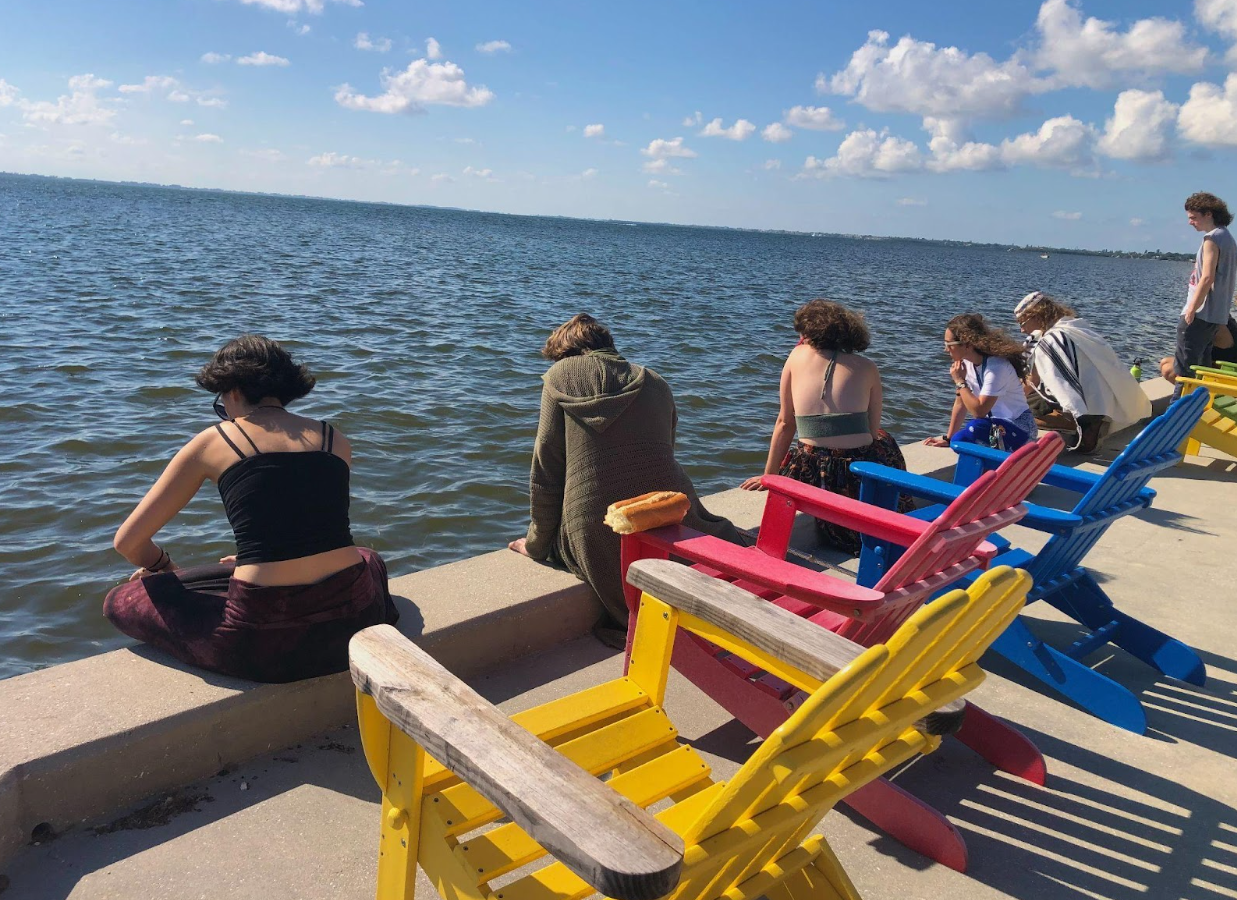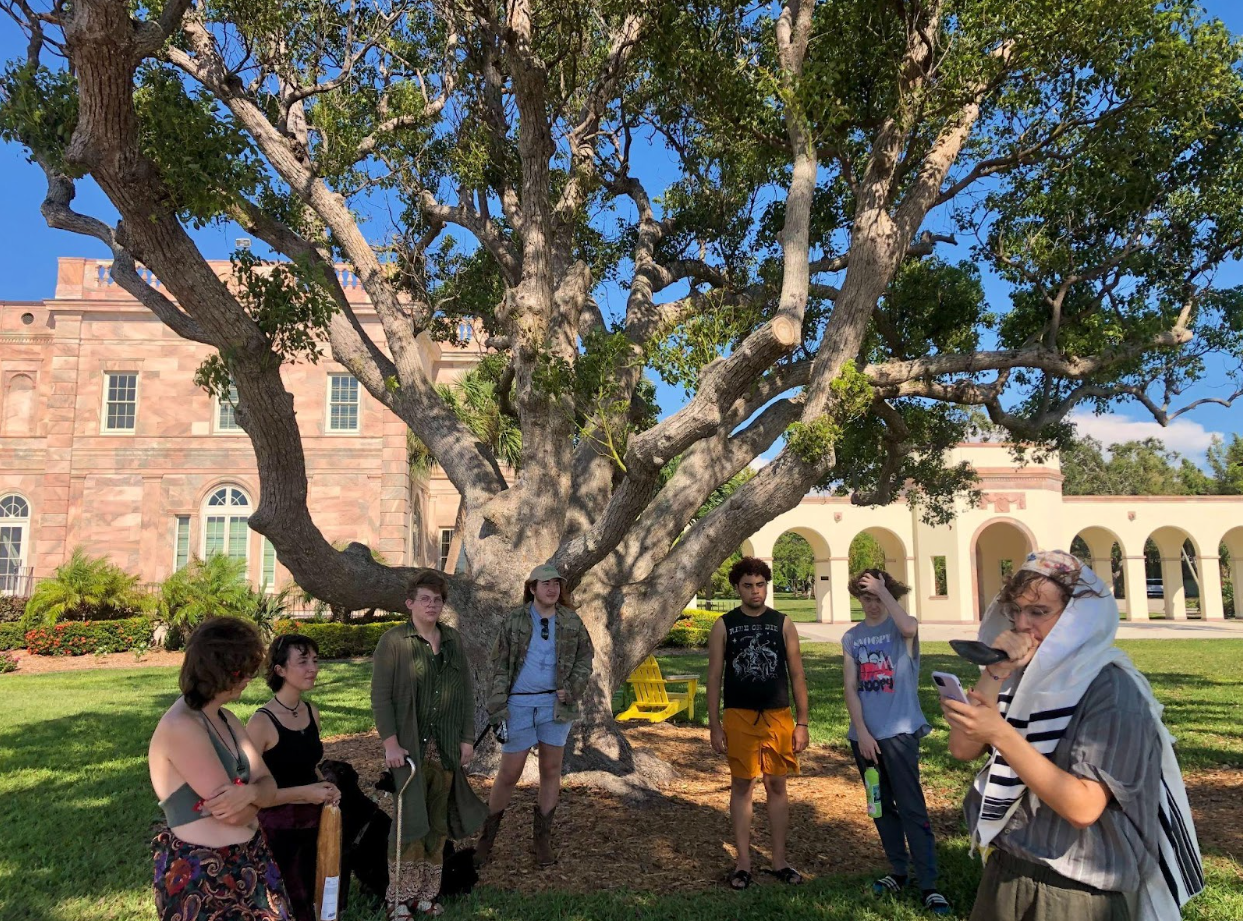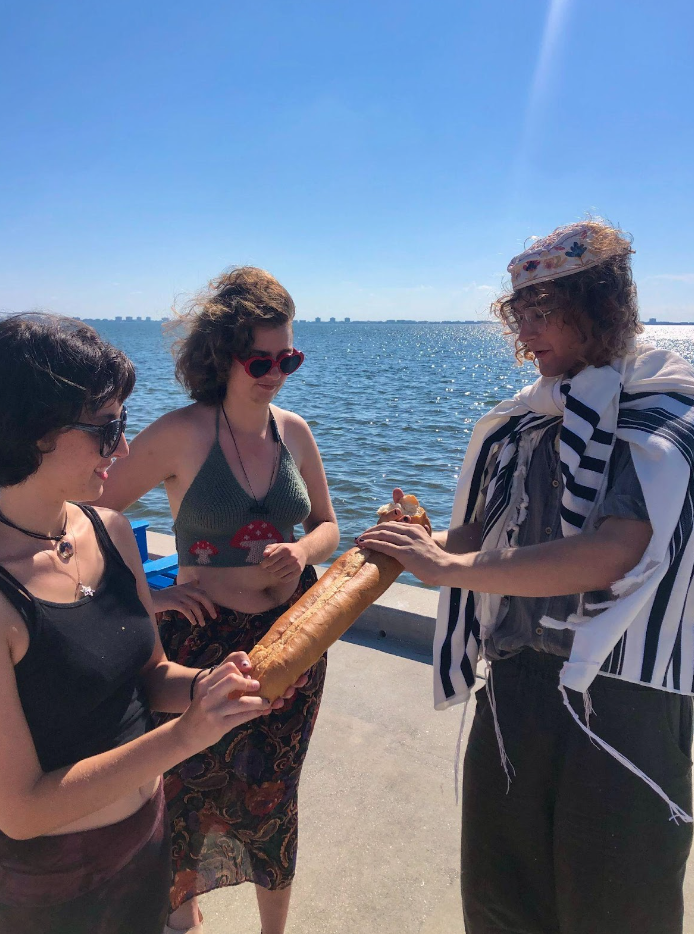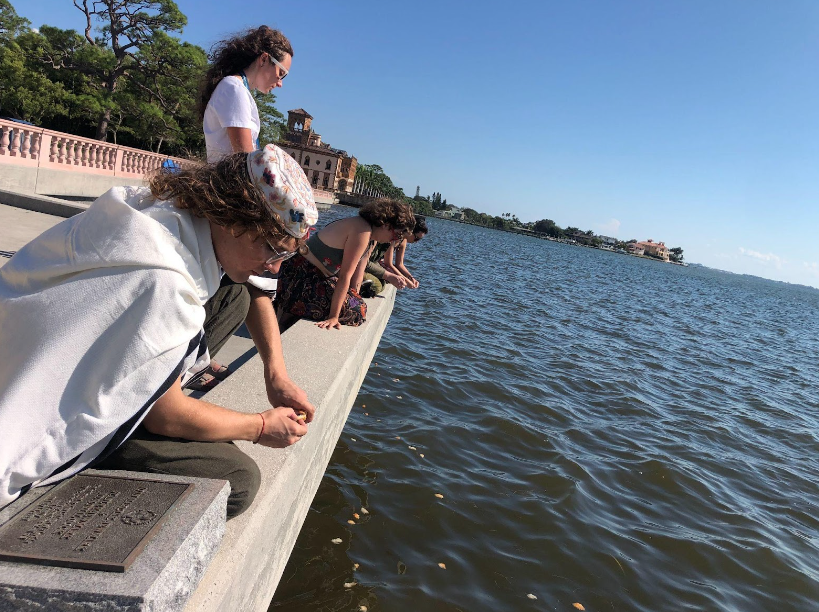The Hillel Club met on Sept. 16 in the Old Mail Room (OMR) to celebrate the Jewish New Year, Rosh Hashanah, with a potluck. This was the first activity the club has hosted this semester, and it featured traditional food including apples and honey, Challah bread and a new fruit, in this case pomegranate, to celebrate the sweetness of the New Year, which is year 5784 on the Jewish calendar. All New College students were invited to participate, and the 14 attendees brought food and their own reusable utensils.
“It was really touching to see so many non-Jews trying to learn about this holiday from a place of genuine curiosity,” second-year student Lily Stewart told the Catalyst.
Hillel President and second-year Nya Jacobson was excited by the turnout and looks forward to helping build community on campus. “I think facilitating community spaces is really important,” Jacobson said.“Yes, obviously we are here for Jewish students, but we always try to reiterate that we’re here for all students, not just Jewish students. We love it when anybody comes. You don’t have to be religious, you don’t have to be Jewish, it’s nice to have a community space where people can come together and find friends, find support.”
The club, which is a chapter of the Gulf Coast Hillel Federation, has 31 members this semester, a big jump from last semester’s three. Jacobson has worked hard to build up the club from the 2022-2023 school year, which had struggled due to lack of student leadership. And the club’s sponsor for two decades, Professor of Anthropology Uzi Baram, retired from New College this past summer. Now the club has a hopeful new sponsor, Professor of Hebrew Sarit Moskowitz, who has offered to fill the vacancy.
“I can see Hillel as a club that offers a connection to Jewish life and serves as a safe, friendly community for all types of Jewish students to gather and enrich their college life experience,” Moskowitz told the Catalyst.
Jacobson emphasized that they are excited to have an opportunity to teach others about Judaism and the culture, as it decreases the likelihood of hate crimes and helps foster a safe community. “Antisemitism is very real and prevalent, and I think it’s important to continue making our voices heard and establishing that we are here, and friendly, regular people,” Jacobson said. “That’s part of why I feel it’s important to make it open to all students, and not have it be an exclusively Jewish space. If you share food from someone’s culture, how can you hate those people?”
Many students said attending the potluck was insightful.
“I wanted to observe how [Jewish people] celebrate, and I think it’s important to [learn] by people who observe that religion,” third-year student Matthew Senecal said. “ [Now] I have better knowledge on what they determine as kosher food.”
Stewart expressed excitement about the revival the club has experienced this year. “Last year I knew there were Jews on campus but I never knew who they were,” Stewart said. “Now even though I don’t know a lot of people well, it’s nice to know that there are people like me here. It’s reassuring to know that I’m not the only one, I’m not the only Jew here.”

By the Bayfront on Sept. 17, the Hillel Club celebrated Tashlikh, the second day of Rosh Hashanah, Tashlikh is celebrated by throwing bread into the water, which symbolizes getting rid of one’s sins, and reflecting on the past as well as the future.
“It was a good educational opportunity. I learned a lot about my religion that I didn’t know,” first-year attendee Sean Orienstein said. “It was a good experience for me to meet other Jewish people and learn more.”
Orienstein continued, “I’m mostly excited to be a part of a Hillel Club because it’s new to me, and I’ve never really had that in schools before. It’s mostly been clubs for other religions. … I’m excited. It was one of the first clubs I wanted to join.”
Other events are being planned for the rest of the school year. Jacobson said that the Hillel Club will have a ‘break-fast’ celebration for the end of Yom Kippur Other events are in the works for Sukkot, where a hut is built outdoors, and for Hanukkah.
“I’m excited to do outreach to the incoming freshman class, because I’d love to get them included if they’re interested,” Jacobson explained. “A lot of them presumably are not Jewish, because we’re a small percentage of the population… but one of our main goals as a club is to provide education.”



